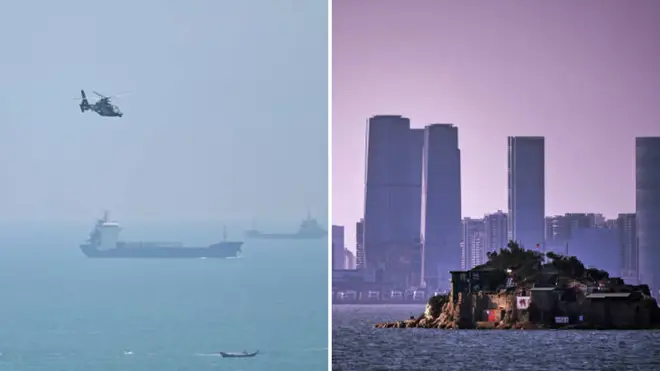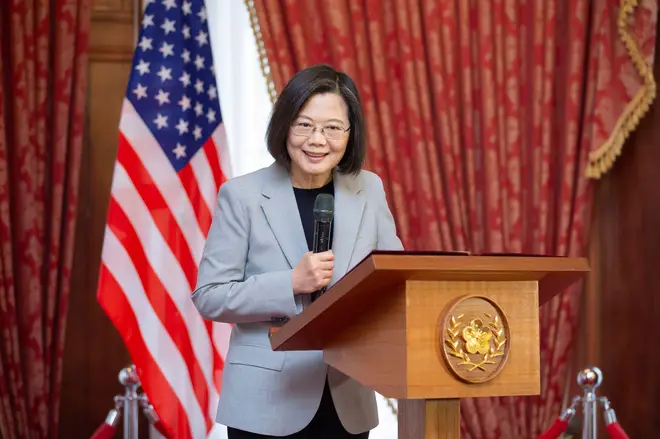
Paul Brand 10am - 12pm
9 April 2023, 14:35 | Updated: 9 April 2023, 14:59

Chinese and Taiwanese ships are locked in a tense military stand-off near a buffer zone in the sea between the two countries.
Some 20 ships are facing each other near the median line, a point in the ocean that Chinese forces have tacitly agreed not to cross. Another 70 Chinese aircraft have also been spotted around the island on Sunday.
It comes after China said its military had simulated precision strikes on "key targets on the island and the surrounding sea areas" on Saturday, the second day of drills, according to Reuters.
Taiwan has also reported several sorties by Chinese air forces in recent days, with a source telling the news wire that Beijing was interested in "foreign military targets.
"Taiwan is not their only target," they said. "It's very provocative."

China claims that Taiwan is part of its sovereign territory, even though the country is democratically governed.
The Taiwanese government said that it would "not escalate conflicts nor cause disputes" but would respond "appropriately" to the Chinese drills.
It said: "Under the unified command of the theatre joint operations command centre, multiple types of units carried out simulated joint precision strikes on key targets on Taiwan island and the surrounding sea areas, and continue to maintain an offensive posture around the island."
China began the exercises the day after Taiwan's President Tsai Ing-wen came back from a visit to the US where she met congressional leaders, which angered Beijing. The Chinese government vies any interaction between US and Taiwanese officials as a challenge to its claim to the island.

US would step in if China invaded Taiwan, says expert
Speaker Kevin McCarthy hosted President Tsai Ing-wen on Wednesday in a show of US support for the self-ruled island, along with a bipartisan delegation of more than a dozen US legislators.
The Biden administration maintains there is nothing provocative about the visit by Ms Tsai, which is the latest of half a dozen to the US, but it comes as the US-China relationship has fallen to historic lows, with American support for Taiwan becoming one of the main points of difference.
The formal trappings of the meeting, and the senior rank of some of the elected officials in the delegation from Congress, could lead China to view it as an escalation. No speaker is known to have met a Taiwanese president on US soil since Washington broke off formal diplomatic relations in 1979.
The Chinese Aircraft Carrier Type-002 “Shandong” reportedly spotted yesterday by Cantonese Fishermen to the East of Taiwan. pic.twitter.com/CEu6X8uGCB
— OSINTdefender (@sentdefender) April 8, 2023
In response to the meeting, Beijing said it would take "resolute and forceful measures to defend national sovereignty and territorial integrity", in a statement issued early on Thursday by the Ministry of Foreign Affairs.
It urged the US "not to walk further down a wrong and dangerous road".
In December, China's military sent 71 planes and seven ships towards Taiwan in a 24-hour display of force directed at the self-ruled island after Beijing expressed anger at Taiwan-related provisions in a US annual defence spending bill.